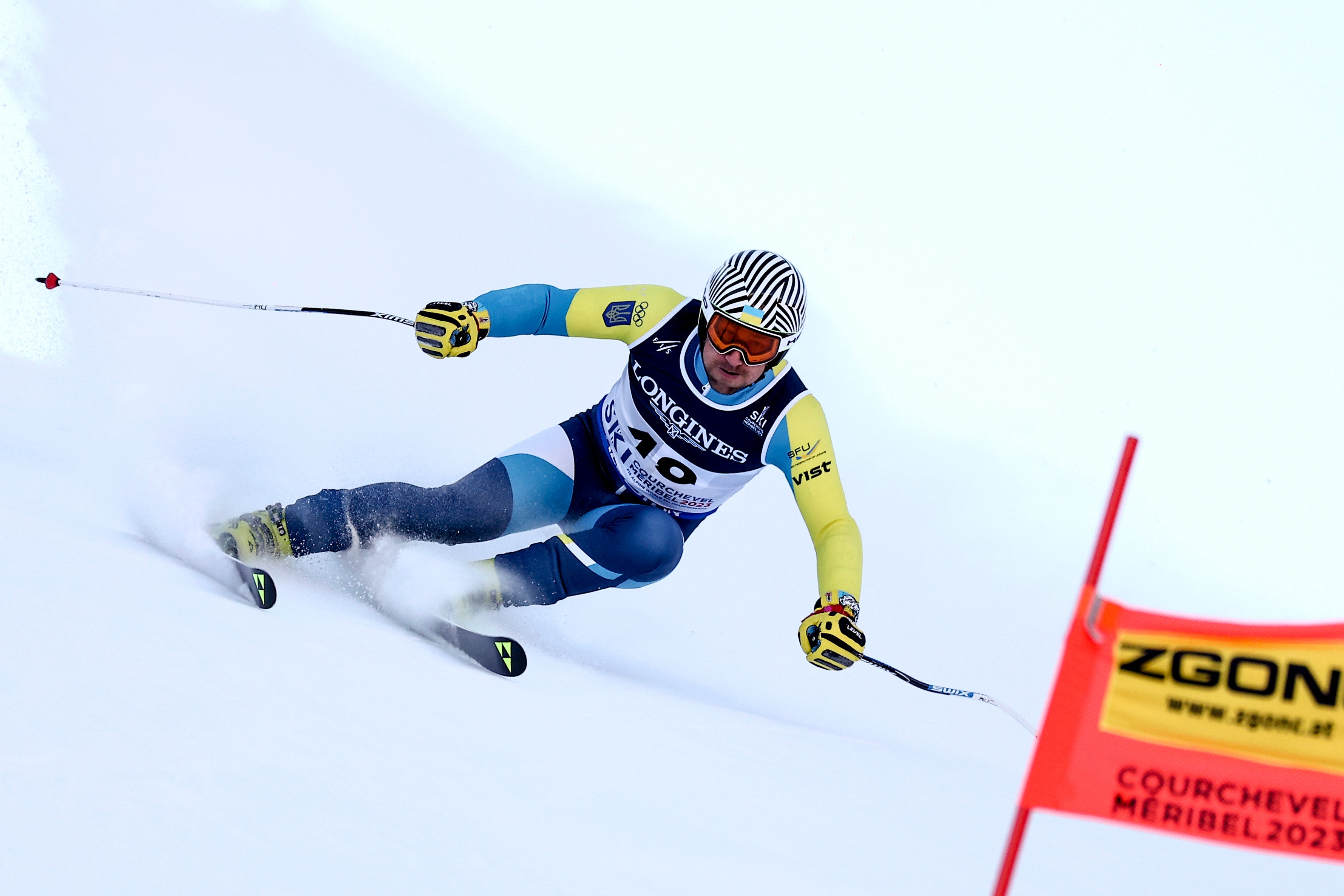Ukrainian skier pushes to keep Russians out of the Olympics
Ukrainian skier Ivan Kovbasnyuk can’t train at home in the Carpathian Mountains because war in the country has damaged the power grid to the point that there’s not enough energy to make the chairlifts operate

Your support helps us to tell the story
This election is still a dead heat, according to most polls. In a fight with such wafer-thin margins, we need reporters on the ground talking to the people Trump and Harris are courting. Your support allows us to keep sending journalists to the story.
The Independent is trusted by 27 million Americans from across the entire political spectrum every month. Unlike many other quality news outlets, we choose not to lock you out of our reporting and analysis with paywalls. But quality journalism must still be paid for.
Help us keep bring these critical stories to light. Your support makes all the difference.
Ukrainian skier Ivan Kovbasnyuk, a two-time Olympian, can’t train at home in the Carpathian Mountains because war in the country has damaged the power grid so severely that there’s not enough energy to make the chairlifts operate.
That’s just one of the reasons why he thinks athletes from Russia and Belarus shouldn’t be allowed to compete at the next Olympics — or in any international sports events.
“It’s not fair when Ukrainian sportsmen don’t have a chance to participate in the Olympics because they are dying on the battlefields while Russian athletes are just silently supporting (Vladimir) Putin’s crime regime,” Kovbasnyuk said after competing in the combined race at the Alpine skiing world championships on Tuesday.
“This is absolutely not OK,” he added through a translator. “We will do everything in our powers to prevent them from being a part of the Olympic family again. And we will defend ourselves until the end, down to the last soldier, to the last person in Ukraine.”
Then, to make sure his message got through, Kovbasnyuk added in English to The Associated Press, “Russia is killing my people. Not good situation for Olympic Committee.”
Kovbasnyuk’s comments come amid the International Olympic Committee's push to allow athletes from Russia and Belarus who have not actively supported the war to enter qualifying events for the 2024 Paris Summer Games.
The 29-year-old Kovbasnyuk is the senior member of Ukraine’s delegation of eight skiers (four men and four women) at these championships. The other seven athletes are much younger, such as 22-year-old Anastasiia Shepilenko, who will compete in the women’s super-G on Wednesday.
Athletes from Russia and its military ally Belarus are still banned by the International Ski Federation (FIS) from world championships and World Cup events — a suspension that his been in place since soon after Russia started the war last February.
The invasion of Ukraine began four days after the Beijing Olympics closed.
As athletes representing Ukraine internationally, the team’s skiers have a special exemption not to be drafted into the army.
“It's really hard psychologically for me to race here because a lot of my friends are fighting,” Kovbasnyuk said after finishing 44th in the super-G portion of the combined. “A lot of my friends were already killed in this war. At least I’m here and proud of representing Ukraine. But it’s super hard to think about skiing, about training, about anything, when your friends, your people, are dying back in Ukraine.”
Kovbasnyuk then grew even more frustrated when he fell a few gates into his slalom run.
While skiers in other disciplines have been able to train in Ukraine at ski cross and slopestyle facilities built last year, the country's Alpine racers have been forced to find functioning facilities in Austria and Lithuania.
“We don’t have training time. We don’t have equipment. We don’t have coaches. We don’t have opportunities,” Kovbasnyuk said. “We don’t have anything right now. But that’s the least of our problems. The biggest problem is back in our home country. So all I can do is just proudly represent my country in the way I can right now.”
Two weeks ago, the IOC set out a preferred path for Russians and Belarusians to compete as neutrals, likely in Asia, and try to qualify for Paris. Those consultations have begun and the umbrella group of Summer Games sports, known as ASOIF, has a March 3 meeting of its council to discuss the issue.
The IOC has cited the human rights of Russians and Belarusians not to face discrimination based just on the passport they hold. Athletes and officials who have actively supported the war face continued exclusion.
Final decisions will rest with the individual Summer Games sports, and potentially later with FIS and other winter sports governing bodies ahead of the 2026 Winter Games being co-hosted by Milan and Cortina d’Ampezzo.
Kovbasnyuk is not thinking that far ahead, though.
“Sooner or later, I’m sure we’ll all join the army, because this war will not end anytime soon,” he said. “I will go join the Ukrainian army to serve my country.”
___
AP Sports Writer Graham Dunbar in Geneva contributed to this report.
___
Andrew Dampf is at https://twitter.com/AndrewDampf
___
More AP sports coverage from Europe: https://apnews.com/hub/sports-europe and https://twitter.com/AP_Sports
Subscribe to Independent Premium to bookmark this article
Want to bookmark your favourite articles and stories to read or reference later? Start your Independent Premium subscription today.